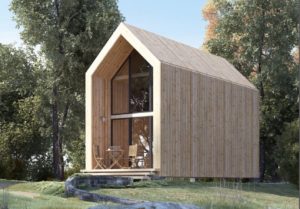On 02.07.2018 a meeting of the working group was held at the SPCleantech headquarters as part of the SPCleantech members “CleanTech House” project. The design group consisting of architectural companies, manufacturers and institutions participate aims to develop modular prefabricated wooden houses based on the technology proposed by the PalettenWerk company.
PalettenWerk has developed a technology for the production of wooden houses based on a project financed by NCBiR in cooperation with the Cracow University of Technology – Małopolskie Centrum Budownictwa Energooszczędnego using a patentable polymer connection and prefabrication technology based on improved glued laminated timber panels (CLT).
Members of the working group are:
- PalettenWerk
- Horizon Studio
- BLOK Architekci
- Bjerg Arkitekter
- SUMA Architektów
- 123HOME
- Małopolskie Centrum Budownictwa Energooszczędnego
- SPCleantech
Houses and modular buildings
Houses and buildings are based on repeatable construction modules. Prefabricated walls are mounted on individually made foundations. The division of spaces inside the modules takes place through partition walls. The construction of prefabricated elements allows for the expansion of the facility at a later time, depending on the individual needs and characteristics of the plot.



